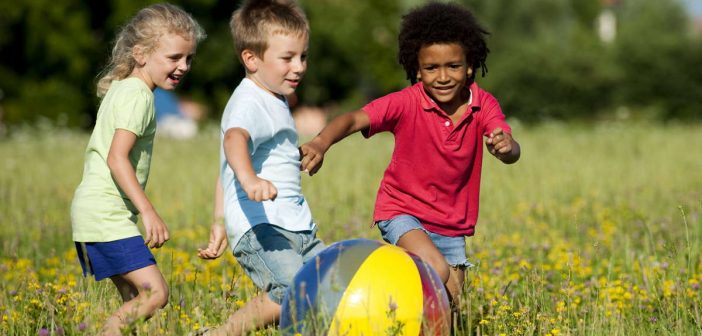Play is an important aspect of the development of a child. Play comes naturally to us and is not only about fun but a lot of essential learning. Be it a game of peek-a-boo or making funny faces to amuse your toddler, these actually form some of the earliest forms of communication and interactions for your child. Here is how children learn some of the most important lessons through play.
Play is our brain’s favorite way of learning.
~ Diane Ackeman
 Children explore themselves and the world around them through play. Toddlers become more aware of themselves as they use their bodies and senses to play. Playing with parents also helps create a strong bond. Pretend play and imaginative play help older children learn about themselves and different roles that are a reflection of the society they live in. They learn about rules about sharing and waiting for turns. All lessons that are essential to survive as an adult. Play is also a great arena to develop physical and mental skills. Not only are fine and gross motor skills refined in different play activities, it also contributes to honing cognitive skills such as planning, paying attention and problem solving.
Children explore themselves and the world around them through play. Toddlers become more aware of themselves as they use their bodies and senses to play. Playing with parents also helps create a strong bond. Pretend play and imaginative play help older children learn about themselves and different roles that are a reflection of the society they live in. They learn about rules about sharing and waiting for turns. All lessons that are essential to survive as an adult. Play is also a great arena to develop physical and mental skills. Not only are fine and gross motor skills refined in different play activities, it also contributes to honing cognitive skills such as planning, paying attention and problem solving.
Play is also an important arena for children to develop social skills and communication. It is a great opportunity to mix with other children. While playing with age mates, they need to be heard. If a friend is cheating, they learn to let their thoughts and opinions known. If they fight, they learn to make up. They learn things like negotiation, adjustment and also to give others a chance and become more independent beings. Children’s imagination and creativity are also enhanced during playtime as they conjure up scenarios and enact different roles.
Children also feel loved and develop compassion for others through play activities. There is a sense of belonging that comes interacting and playing with a group. They form bonds and learn how to keep up relationships. The group looks after each other and a sense of caring and empathy develops. A sense of camaraderie arises especially in team sports. Children don’t only learn to work well with other but also a sense of caring towards teammates this also instills confidence and a sense of achievement.
 Competitive sports a present great opportunity to develop leadership skills and teamwork. But it is not necessary for play and sporting activities to have a goal or an outcome that is apparent. Because all play activities, games and sports contribute to an all round development of your child. And as the child grows older and time spent in play reduces, it becomes more essential for your child’s physical and mental health, especially with pediatric diseases like obesity, depression and anxiety becoming more and more common. So take out time and play with your children. Connect with them better. Encourage them to play games of their interest, explore, create and most importantly have fun.
Competitive sports a present great opportunity to develop leadership skills and teamwork. But it is not necessary for play and sporting activities to have a goal or an outcome that is apparent. Because all play activities, games and sports contribute to an all round development of your child. And as the child grows older and time spent in play reduces, it becomes more essential for your child’s physical and mental health, especially with pediatric diseases like obesity, depression and anxiety becoming more and more common. So take out time and play with your children. Connect with them better. Encourage them to play games of their interest, explore, create and most importantly have fun.







